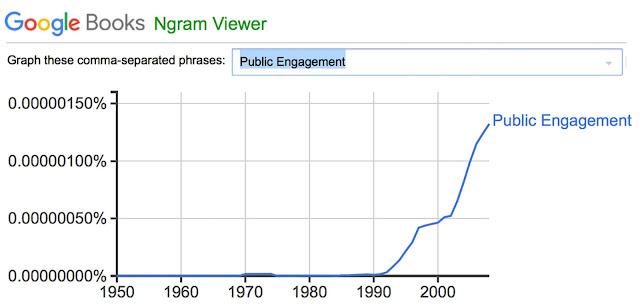New Investigators: You got engaged?
As the importance of public engagement is increasingly recognised, the phrase is being used more frequently.
We all love haematology research, and are fortunate that the public, through governments and charities, supports us strongly enough that they are willing to pay for our experiments (and our rent…). Researchers have a responsibility to return the favour – to inform the public about what we do and how it benefits them, answer their questions, and listen to their expectations for our research. These collaborative interactions between experts and non-experts have been labelled public engagement. To ensure that they are serving society as effectively as possible, scientific institutions are increasingly encouraging, and sometimes even requiring, researchers to engage with the community. Public engagement in the sciences aims to expand from the traditional approach where the only goal was to increase the public’s understanding of science, to focus on mutual interactions. These aim to positively influence all parties, strengthen trust and connections between scientists and non-scientists, and ensure that the needs of the public are met.
The mutual benefits of public engagement are most obvious where the public actively participates in research. Imagine your project depends on blood donations. Strategic engagement would include discussing the following questions: Why should someone volunteer to donate blood? How does the public understand your research, why it matters, and how it benefits them? What makes people hesitant to donate? Could you modify your approach to encourage more to participate, or meet patients’ needs better? There is increasing evidence that researchers gain valuable knowledge from interactions like these, leading to improvements in project design, and sometimes even profound changes to their professional values (for example, doi:10.1186/s40900-017-0071-1). Public engagement also benefits you and your research in other ways. Raising awareness of the relevance of your science to society and listening the public’s views builds trust, promotes positive attitudes towards your field, and maybe even motivates people to donate money. Discussion of your work also widens its impact, making it more likely to draw the attention of other researchers. And exposure to the public’s enthusiasm to understand your research provides a great boost in motivation, so you can be extra productive when you return to the bench!
There are many different ways to participate in public engagement, at many age and educational levels. These include traditional or social media outlets, festivals, exhibitions, presentations (at schools, support groups, community events, etc.) and consultation with community organisations. The best way to get involved is to find out what activities are already underway in your region, and ask to join in! There are now many organisations that support researchers with expertise and resources to make this as simple as possible. These can be embedded within universities or research institutions, or belong to outside organisations like the American Association for the Advancement of Science (AAAS).
Misunderstanding of science, and what scientists do, can lead the community to distrust research institutions and the scientific evidence they provide (if you don’t believe me, try googling some public discussions about climate change or childhood vaccination…). It is vital that the research establishment discusses the goals and benefits of their work with the rest of society to maintain strong support for medical research. This is especially important as scientists develop tools to make pharmaceutical, cellular and genomic interventions in patients that could not be envisioned even a few years ago. Haematology researchers, with their deep knowledge of the subject, and contagious passion for it, are perfectly placed to engage with the public about what they are doing, and how it benefits society.
If we don’t do it, who will?
• What public engagement activities have you participated in?
• What potential activities would you like to participate in?
• What organisations and resources supported these activities?
• How has ISEH helped you? How could it help more?
• Leave a comment and let us know!
Stephen Loughran
ISEH New Investigators Committee Member
Postdoctoral Research Associate
Department of Haematology
University of Cambridge
Thorsten Klampfl
Postdoctoral Research Associate
Department of Haematology
University of Cambridge
Postdoctoral Research Associate
Department of Haematology
University of Cambridge






Comments
Post a Comment